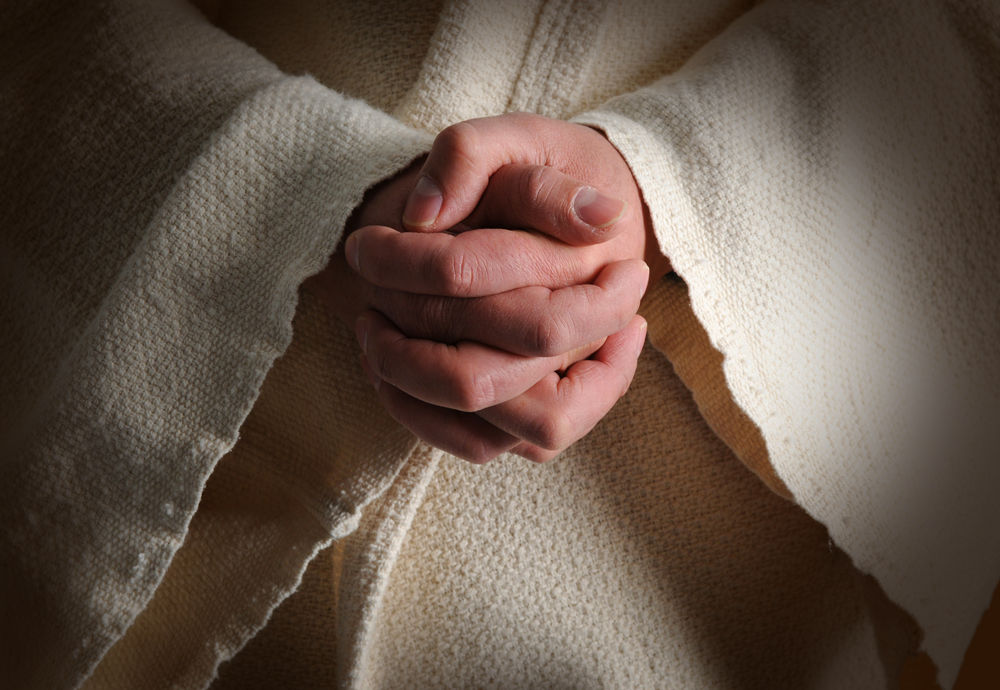John of the Cross teaches that within spirituality and morality there are no exempt areas. Simply put, you cannot be a saint or a highly moral person if you allow yourself a moral exemption or two. Thus, I may not allow myself to split off one moral flaw or sinful habit and see it as unimportant in the light of my positive qualities and the overall good that I do.
For John of the Cross, you cannot be a saint and have a moral blind spot, even if it’s a minor one. A bird tethered to a rock, he says, cannot fly irrespective of whether the cord holding it is a cable or a string.
The same is true for our efforts to protect life and foster justice in our world. The protection of life and the promotion of justice are all of one piece. We cannot be an authentic prophet and have a few moral blind spots.
A huge consequence flows from this — namely, we cannot treat issues like abortion, nuclear war, lack of ecological sensitivity, the plight of refugees, racism, sexism, poverty and inequality, poor access to health care, unequal access to education, sexual irresponsibility and discrimination against the LGBT community in isolation from each other, as if these were wholly discrete issues. Whether we admit it or not, these areas are all inextricably interconnected.
To quote Cardinal Joseph Bernardin: “The success of any one of the issues concerning life requires a concern for the broader attitude in society about the respect for human life.” That’s a strong challenge for all of us, on all sides of the ideological spectrum.
Thus, those of us who are concerned about abortion need to accept that the problem of abortion cannot be effectively addressed without at the same time addressing issues of poverty, access to health care, sexual morality and even capital punishment. The interconnection here is not wholly mystical. It’s real. Abortion is driven more by poverty and lack of adequate support than by any liberal ideology.
Hence, the struggle against abortion must also focus on the issues of poverty and support for pregnant women. As well, to morally accept killing in one area (capital punishment) helps sanction its acceptance in another area (abortion). Sexual morality must also be addressed since abortion is the inevitable by-product of a society within which two people who are not married to each other have sex with each other.
It’s all one piece, and any opposition to abortion that fails to adequately recognize the wider perspective that more fully defines pro-life leaves many sincere people unable to support anti-abortion groups.
Conversely, those of us who are concerned with the issues of poverty, health care, capital punishment, ecology, war, racism, sexism and LGBT rights need to accept that these issues cannot be effectively addressed without also addressing the issue of abortion. Again, the interconnection isn’t just mystical, it’s empirical: Failure to be sensitive to who is weak and vulnerable in one area deeply compromises one’s moral standing on other issues that deal with the weak and the vulnerable. We must advocate for and strive to protect everyone who falls victim within our present way of living, and that includes the unborn.
It’s all of one piece! There can be no exempt areas, thus opposition to the protection of the unborn is not just antithetical to what’s central within a social justice agenda, but, perhaps more than anything else, it leaves liberal ideology and its political allies compromised in a way that allows many sincere people to withhold their support.
Clearly, of course, nobody is asked to give equal energy to every justice issue in the world. Accepting that none of these issues can be effectively dealt within isolation shouldn’t stop us from passionately working on one issue or another. But knowing that these issues are all of one piece does demand that we always recognize that, however important our particular issue, we may not see it in simple black and white, without nuance, as an issue that can be dealt with within one ideological, political or religious silo. We must always be sensitive to the whole, to the big picture, to the intricate interconnections among all these social issues.
And, not least, we must be humble before and sensitive to our own moral inconsistencies.
We will, this side of eternity, always have them and we must forgive ourselves for them and not let perfection, that fact we can’t be fully consistent, be the enemy of the good, that fact that we can do some good work that is effective. But acknowledging both our own inconsistencies and the complexities of the issues should make us more open to listening to the views of others and make us less doctrinaire and fundamentalist in our own attitudes.
All the issues that deal with justice and peace, are of one piece, one whole, one moral corpus, one seamless garment; and, like the soldiers casting dice for Jesus’ clothing, we should hesitate to tear this garment into different pieces.
Oblate of Mary Immaculate Father Ronald Rolheiser is a specialist in the field of spirituality and systematic theology. His website is www.ronrolheiser.com.

